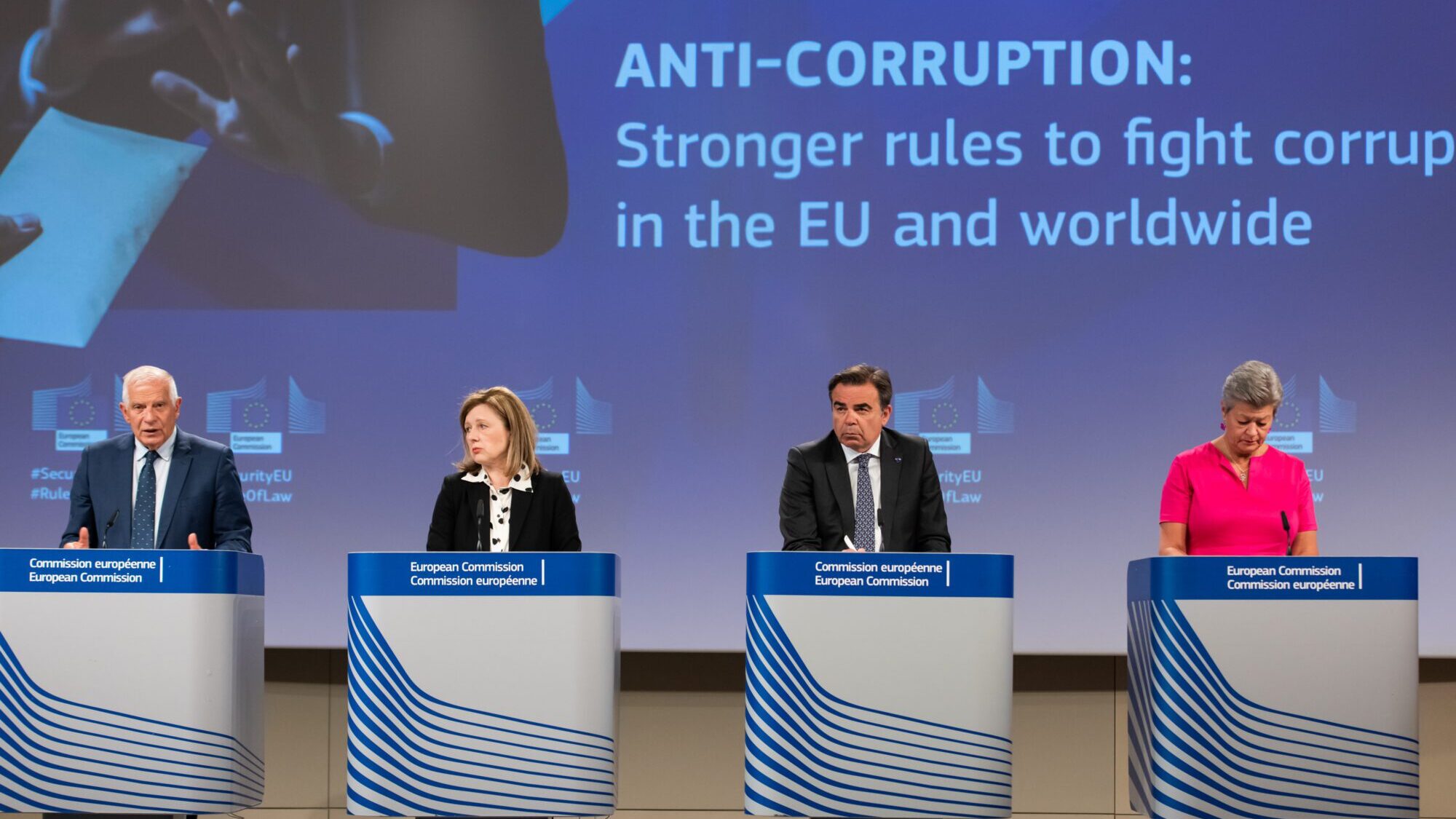
From left to right: Josep Borrell, EU High Representative for Foreign Affairs; Věra Jourová, Commission Vice-President for Values and Transparency; Margaritas Schinas, Commission Vice-President for Promoting the European Way of Life; and Ylva Johansson, Commissioner for Home Affairs.
The European Union’s proposed new ethics body—meant to oversee corruption in EU institutions—will have no real power to investigate and prosecute cases after all. That is what Commission Vice President Věra Jourová admitted to MEPs behind closed doors, according to leaked notes from the meeting obtained by Politico on Tuesday, May 9th.
According to the confidential documents, the reason for not pursuing tougher accountability within Brussels is linked to a ruling from the Commission’s legal service, which determined “that type of power isn’t possible without a treaty change,” Jourová reportedly explained to the MEPs.
The inter-institutional ethics body would instead take a “differentiated approach” to align all nine institutions on a “general framework on ethics and [integrity] standards,” common for all of them, but then letting each institution decide for itself how to apply them to its own internal rules.
In plain language, this means the anti-corruption body will only serve as an advisor for general guidelines within the EU institutions while having no authority whatsoever to investigate the Eurocrats’ finances nor to refer them for prosecution.
The news came only days after the Commission proposed a new set of centralized anti-corruption measures for the member states, viewed by some as yet another attempt at meddling with their sovereignty. The Commission at least partly evoked Qatargate as a reason for the new set of rules, even though it contained no specific measures for EU officials, the primary players in Brussels’ months-long corruption scandal.
With #AntiCorruption Package we strengthen the EU rules to fight corruption, to:
— Věra Jourová (@VeraJourova) May 3, 2023
➡️increase prevention
➡️build a culture of integrity and transparency
➡️harmonize minimum crimes and penalties in 🇪🇺
➡️ensure effective investigation and prosecution pic.twitter.com/VfZXd0CQ7z
Instead, the Commission promised to ramp up the transparency and accountability of Eurocrats in a separate measure, through the soon-to-be-established EU ethics body, the details of which are expected to be unveiled later this month. However, based on Jourová’s comments, the body will be more of a paper tiger than an actual authority on corruption in Brussels.
Even if some were hoping for tougher measures in the wake of Qatargate, many on the right are relieved as well, who naturally watch with skepticism the rise of any new authority proposed by the Commission. Indeed, although it was mostly leftist MEPs and officials who were caught up in the fallout of Qatargate, the proposed ethics body was challenged primarily from the right—by EPP, ECR, and ID—out of concern for the potential political abuse such authority with investigative powers would inevitably make possible.
And even if MEPs could be more easily won over to support the now watered-down proposal, it’s still a long way until the body is finally established, since it first needs to be subscribed to by all nine EU institutions, including the Council. The final proposal is scheduled to be published by the end of May.
